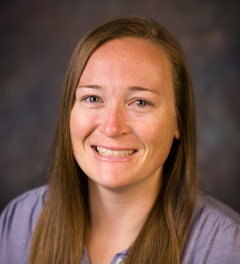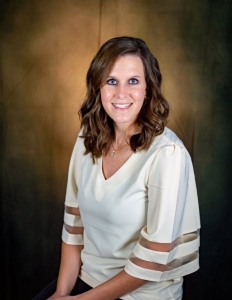Location(s): Frankfort, Centralia, Onaga, Holton, Westmoreland, St. Marys
Preventive Healthcare, Inspired by You
At Community HealthCare System, we are dedicated to putting your well-being first. We understand the importance of timely and convenient access to health screenings – after all, early detection is your best defense against cancer and other diseases. That's why we make it easy to schedule and receive screenings when and where you need them.
Learn more about the screenings available at CHCS and make an appointment for the screenings you and your family need today:
Colonoscopies: Colorectal Cancer Screening
Colorectal cancer stands as the second-leading cause of cancer-related deaths in America. However, there is promising news: Thanks to an increasing number of individuals getting screened on time, the incidence rate is on the decline.
That’s a testament to the power of colonoscopies, especially because these screenings can do more than detect colon cancer—in many cases, they can prevent it as well. That’s because pre-cancerous polyps are removed as part of the screening.
If you are age 45 or older – or younger with a family history of colorectal cancer – ask your primary care provider today about scheduling a colonoscopy.
Mammograms: Breast Cancer Screening
When breast cancer is detected early, it is highly treatable. Mammograms are the most important tool in early detection. Our advanced 3D digital mammography takes only a few minutes and can detect tumors before a patient would feel a lump or notice symptoms.
Our board-certified radiologists use state-of-the-art monitors to read and interpret mammogram results. Women should begin annual mammograms at age 40 or earlier if you have high-risk factors or a family history of breast cancer. Your primary care provider can perform an in-office risk assessment to determine your need for early mammograms.
To schedule a mammogram, call 785-889-4272, ext. 2102.
DEXA Scan: Osteoporosis Screening
Too often, breaking a bone is someone’s first clue they have osteoporosis. To diagnose osteoporosis before injury occurs, screening is key. The sooner you’re diagnosed, the faster you can receive treatments that decrease the effects of osteoporosis. A DEXA scan uses imaging to measure bone density, which provides information about your risk or current status related to osteoporosis.
Screening for osteoporosis is generally recommended for women age 65 or older and men 70 or older. If you have certain risk factors, screening may be recommended sooner. Talk to your doctor for more information.
To schedule your osteoporosis screening, call 785-889-4272, ext. 2102.
Screening for Hepatitis C (Blood Test)
Hepatitis C affects the liver. Doctors use a simple blood test to determine if you have ever had the hepatitis C virus. The blood test looks for antibodies that are released in the blood when someone is infected with the hepatitis C virus.
Our laboratory provides convenient, quality services to support you and your care providers in checking your health and catching issues early. Discuss any risk factors you may have for Hepatitis C with your primary care provider to determine if testing is right for you.
To schedule a Hepatitis C test, call 785-889-4272, ext. 2102.
Abdominal Aortic Ultrasound
The aorta is the main artery that carries blood from your heart. An abdominal aortic aneurysm (AAA) is a bulge that can form in the aorta, particularly in the abdomen. AAAs can grow slowly without symptoms, but they can burst and cause internal bleeding, which can be life-threatening.
An ultrasound is used to detect AAA – and if detected early, AAA can be treated before a rupture occurs. Both men and women can have AAA, but it’s much more common in men. If you’re a man aged 65-75, and you’re a current or former smoker, talk to your primary care provider to see if this screening is recommended for you – especially if you’re experiencing back or side pain.
To schedule, call 785-889-4272, ext. 2102.
Skin Cancer Screening
Skin cancer is the most common type of cancer, so prevention is key (sunscreen and limited sun exposure). However, if you do get skin cancer, it’s most treatable when detected early – which means annual screenings are also important.
Skin cancer assessments are non-invasive and can be completed in just a few minutes during a routine primary care visit. You should also keep an eye out for any new spots on your skin that look different from others or are changing, itching, or bleeding. If you notice any of these symptoms or wish to schedule a skin cancer screening, contact your primary care provider.
Low-Dose CT Scan: Lung Cancer Screening
You can have lung cancer before showing symptoms. If you’re a smoker, screening is important because detecting lung cancer early, when it is easier to treat, can prevent the disease from spreading. Adults between 50-77 with a history of smoking should ask their primary care provider about lung cancer screening.
Our imaging department offers a low-dose CT scan that takes multiple images of your lungs in as little as fourteen seconds. The fast-scanning capabilities and advanced image quality provide a quick and accurate diagnosis.
To schedule, call 785-889-4272, ext. 2102.

Emma Beck, MD
Family Medicine
Locations: Holton, St. Marys
Position: Physician
Medical Services: Birth Center, Diabetic Care, Family Medicine, Health Screenings, Men's Health, Senior Care, Youth Services, Women's Health
Emma Beck, MD
Dr. Emma Beck earned her Bachelor of Science in Biology with a Minor in Spanish from Oklahoma Baptist University. She went on to complete her medical degree at the University of Kansas Medical School, followed by residency training at Via Christi Family Medicine, where she also completed the Osteopathic Recognition Track. She is currently eligible to sit for the Family Medicine-Obstetrics boards. Dr. Beck’s clinical interests include women’s health and obstetrics, international medicine, and point-of-care ultrasound. Her passion for medicine was sparked early in life, inspired by her mother’s example as a dedicated veterinarian serving their local community. That calling grew into a desire to serve vulnerable and underserved populations—both in rural areas and abroad—with a human-focused, hands-on approach (minus the paws). What Dr. Beck loves most about practicing medicine is getting to know each patient’s unique story. She values the opportunity to partner with individuals and families on their path to wellness, celebrating their milestones and helping them achieve health goals based on what matters most to them. She also appreciates the ever-changing nature of medicine and the learning that comes with every patient encounter. She is also bilingual in Spanish, which enhances her ability to care for diverse patient populations. Originally from Eudora, Kansas, Dr. Beck chose to stay in-state to give back to the place that played such a key role in her education and training. She now lives in Mayetta with her husband, four children, and their Husky, Tiggr. When not at work, you’ll likely find her outside—playing sports, taking walks, working in the yard, or relaxing in her hammock. She’s excited to be living closer to family and looks forward to many backyard gatherings and outdoor adventures. There may even be chickens in their future!
Julia Mueting, APRN-C
Family Medicine
Location: Westmoreland
Position: Advanced Practitioner
Medical Services: Diabetic Care, Family Medicine, Health Screenings, Men's Health, Senior Care, Women's Health, Youth Services
Julia Mueting, APRN-C
Julia Mueting, APRN-C, earned her Bachelor of Science in Nursing from the University of Kansas and went on to complete her Doctor of Nursing Practice (DNP) at Washburn University. She is board certified through the American Academy of Nurse Practitioners and holds additional certifications in Advanced Cardiac Life Support (ACLS), and Basic Life Support (BLS). Julia’s clinical interests include pediatrics, long-term contraception techniques, prenatal care, and lactation support. She finds great fulfillment in the variety that each day brings and values the opportunity to build meaningful relationships with her patients and their families. “I love the reward of helping someone feel better or become more empowered in their health,” she shares. Her best advice for patients? “Always be honest with your provider and ask all your questions. It’s hard to help someone reach their goals without the full picture—we want to be sure you have what you need to succeed at home.” Julia and her husband, Craig, recently built a home in Corning, Kansas, where they are raising their three children—Lexi, Collin, and Charlee. A Topeka native and proud Kansas Jayhawk alum, Julia is also a KC Royals fan. Outside of work, she enjoys spending time with her family, keeping up with her toddlers, and settling into their newly built home—a process she loved but jokes she hopes never to repeat!
Amanda Rempe, APRN
Family Medicine
Location: Centralia
Position: Advanced Practitioner
Medical Services: Diabetic Care, Family Medicine, Health Screenings, Men's Health, Senior Care, Women's Health, Youth Services
Amanda Rempe, APRN
Amanda Rempe has deep roots in the community she now serves as a family nurse practitioner. Born and raised in rural Kansas, Amanda has been connected to Community HealthCare System her entire life—as a patient, a nurse, and now as a provider. Amanda earned her Bachelor of Science in Nursing from Washburn University in 2015 and began her career in emergency medicine at Stormont Vail. She soon returned home to CHCS, where she spent six years caring for patients in the hospital setting. In 2021, she completed her Doctor of Nursing Practice at Washburn and transitioned to the role of APRN. For Amanda, healthcare is personal. “I became a nurse practitioner because I wanted to make a meaningful difference in the community where my friends and family live,” she says. “It’s an honor to walk alongside patients and help them make healthcare decisions that align with their goals.” Amanda is board-certified as a Family Nurse Practitioner (FNP-BC) and is passionate about improving quality of life through personalized, compassionate care. She values the strong relationships she builds with her patients and believes that investing in your health is one of the best decisions you can make. Outside of work, Amanda enjoys reading and spending time with her family. She and her high school sweetheart, Kyle, live outside of Frankfort with their five children—Josie, Kash, Colt, Elsie, and Banks. She’s proud to be raising her family in the same close-knit community that raised her—and just as proud to care for her neighbors at CHCS.